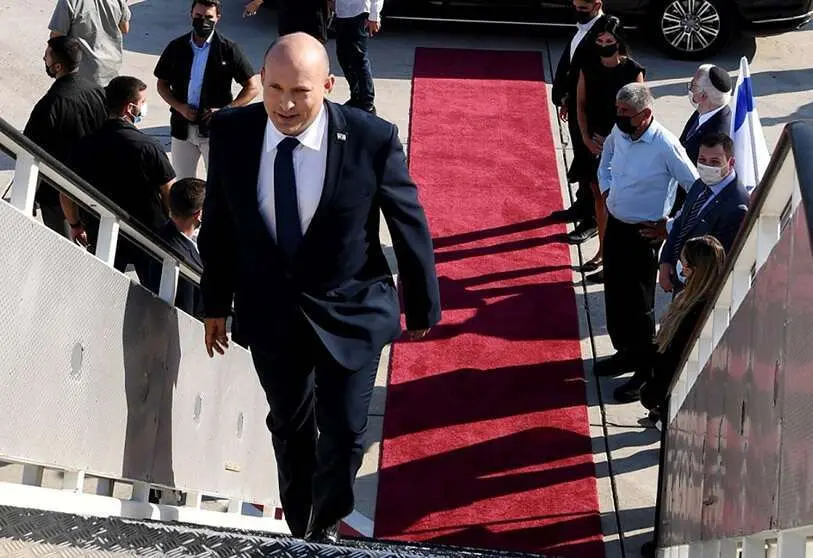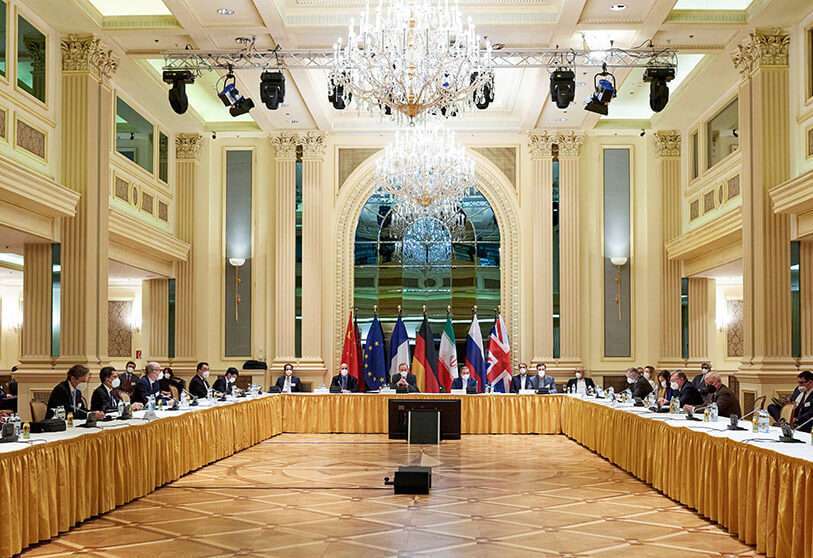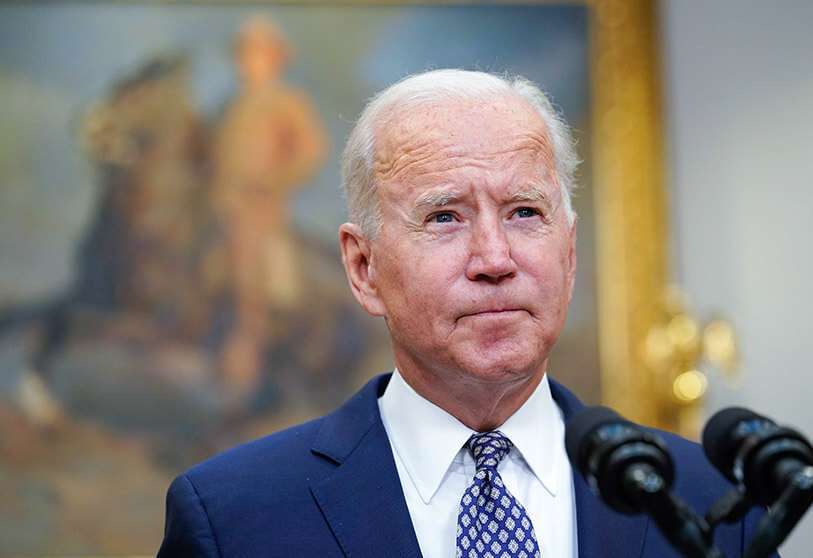Bennet makes first official visit to Washington amid heightened regional tensions

Israeli Prime Minister Naftali Bennet's visit to the United States comes at a difficult time for both countries. Washington is fully engaged in the evacuation of its nationals in Afghanistan, following the fall of Kabul to the Taliban on 15 August. Israel, for its part, faces the meeting with US President Joe Biden in the midst of fierce regional disputes with Iran and increased hostilities with the Gaza Strip.
Despite this complicated situation, the high-level meeting between the two countries is on track. Bennet left Ben Gurion airport for Washington with the main objective of dissuading the US from continuing talks on a return to the Iranian nuclear pact. "There is a new administration in the United States and a new government in Israel and I bring with me a new spirit of cooperation from Jerusalem," Bennet emphasised, minutes before taking off for the US.

In a statement issued by the Prime Minister's Office before his departure, Bennett confirmed that the main priority in his conversation with Biden would be Iran, "especially the leap in the last two or three years in the Iranian nuclear programme". According to Israeli media Haaretz, a diplomatic source said that Bennett would present the US president with an "orderly strategy" to deal with the threat posed by Tehran.
"There is no value in going back to the [2015] nuclear deal. Iran is now at the most advanced point in its nuclear programme, at least in terms of [uranium] enrichment. The pace of enrichment since 2018 is dizzying and worrying," the source explained. Israel will also address the "regional threat" posed by Tehran "in Lebanon, Syria, Iraq, Yemen and Gaza, by sea, air and land". Naftali Bennet has expressed his complete opposition to a US return to the Joint Comprehensive Plan of Action (JCPOA), which limits Iran's nuclear programme in exchange for lifting economic sanctions on the Persian country.

Former US President Donald Trump unilaterally decided to abandon the Iran nuclear deal in 2018 and reimposed sanctions on the Islamic Republic. A move widely applauded by Israel, which was openly opposed to the nuclear deal. With the arrival of the new Biden Administration, the United States has reopened the way to recover the pact and six rounds of talks have been held between the different countries that are members of the pact and Tehran. In addition, there have been informal contacts between the US and Iranian delegations.
Talks are currently stalled with the hope that they will resume in mid-September. The formation of a new government in Iran and the arrival of a new ultra-conservative president, Ebrahim Raisi, have provoked the distrust of Western powers who expect negotiations to become more complicated than under the previous administration. For its part, Tehran has already stated that it will not resume talks on the nuclear pact until the new president forms a cabinet, but has assured that the new government will continue with the efforts of the Vienna talks.

In addition to Iran, which will be the main topic of the meeting between the Israeli prime minister and the US president, other issues such as the Palestinian conflict and the coronavirus will also feature prominently during the meeting. On the Palestinian issue, little progress is expected. The Biden administration has advocated a two-state solution, while Bennet is not in favour of this idea. Given that consensus on Palestinian statehood is virtually impossible within the diverse Israeli government, Biden is not expected to press Bennett to make any major concessions to the Palestinians on his first foreign visit.
Another point of contention between Bennett and Biden could be the settlements in the Occupied Palestinian Territories. The Biden administration has been opposed to the expansion of Jewish settlements on occupied land. So far, Bennet, who has advocated the annexation of parts of the West Bank, has not been overly tense, and in order not to create dissonance ahead of his imminent visit to Washington, the approval of 2,200 new settler housing units, scheduled for last week, has been postponed.

Bennet is scheduled to meet today with senior Democratic administration officials, including Secretary of State Antony Blinken and Defence Secretary Lloyd Austin. Meanwhile, the meeting with Joe Biden will take place tomorrow at the White House, their first face-to-face meeting, amid heightened tensions with the Gaza Strip three months after the 11-day escalation between Israel and Hamas, the de facto government in the enclave, which culminated in the deaths of 265 Palestinians and 13 Israelis.
Indirect negotiations between the Israeli government and the Resistance Movement to reach an agreement for the reconstruction of the Gaza Strip have broken down in the last week. As a result of the blockade imposed on the enclave and the lack of aid, Hamas supporters have launched incendiary balloons into southern Israel and staged demonstrations at the border, raising fears of renewed violence.








